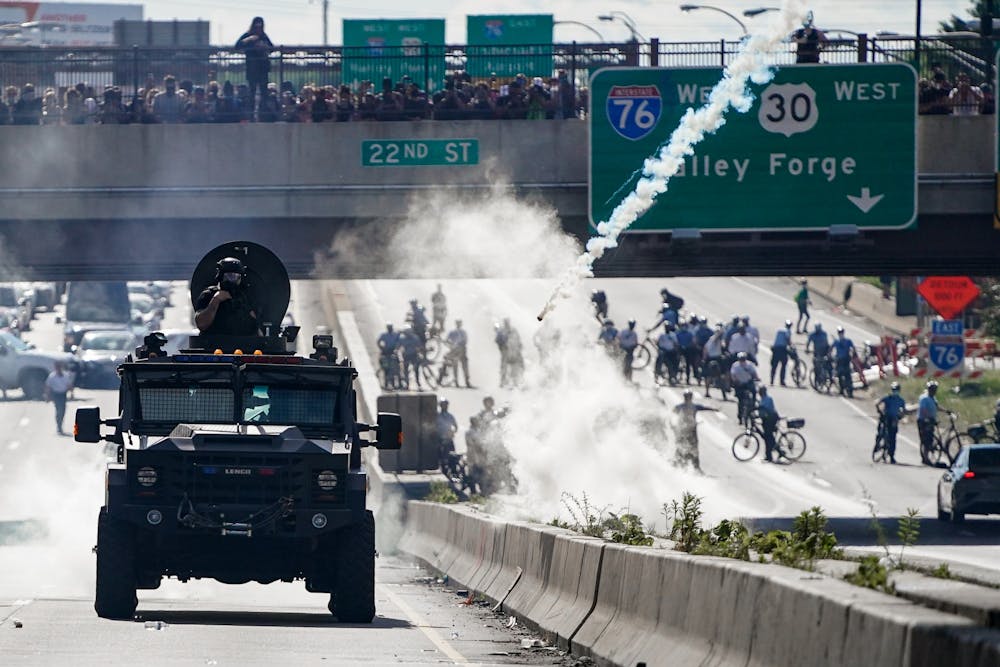The Philadelphia City Council is proposing a bill to ban the use of tear gas on protesters. If passed, the bill would be among the first of its kind in the country.
The bill was introduced on Thursday by Philadelphia City Council member and 1993 College graduate Helen Gym. It already has the backing of the public safety committee of the city council, which is made up of eight of the total of 17 council members, the Inquirer reported.
The bill would permanently ban other weapons, such as tear gas, rubber bullets, pepper spray, and other weapons by police in response to protests, demonstrations, or other “First Amendment Activities," the Inquirer reported.
The effort comes after the use of tear gas, pepper spray, and rubber bullets on peaceful protestors in June following the police killing of George Floyd, The Philadelphia Inquirer reported. Previous statements from police justifying the use of the weapons were later countered with a video investigation from the New York Times, which documented how police trapped and tear-gassed protesters on I-676 on June 1.
The New York Times investigation found videos taken by those in attendance at the protests and claims that the actions of the police SWAT teams were in violation of protocol.
The video was met, hours after its publication on June 25, with an apology from Philadelphia Police Commissioner Danielle Outlaw and Mayor Jim Kenney, who called police actions “unjustifiable." A moratorium on the use of tear gas on peaceful protesters was also issued.
Similar efforts have been launched in cities nationwide such as San Francisco and Aurora, Colorado, but others, such as in Madison, Wisconsin have been shut down, The Inquirer reported.
Critics of such bills told the Inquirer that if non-lethal weapons are banned, this would leave the police with either no weapon or lethal bullets.
RELATED:
Phila. councilmember, Penn alum Helen Gym urges her alma mater to pay PILOTs amid pandemic
Broken teeth and tear gas: Police attack Penn grads, students at Black Lives Matter protest
Penn, Drexel students call on universities to disband police departments
“Residential neighborhoods are not war zones," Gym told the Inquirer after approximately 30 protesters testified in front of the City Council about being victims of these weapons. “Demonstrators are not enemy combatants. This is a first step in building a model of public safety that works with our communities.”
Gym spoke to the DP earlier this week, citing her commitment to civil and human rights in Philadelphia as one of her main priorities.









